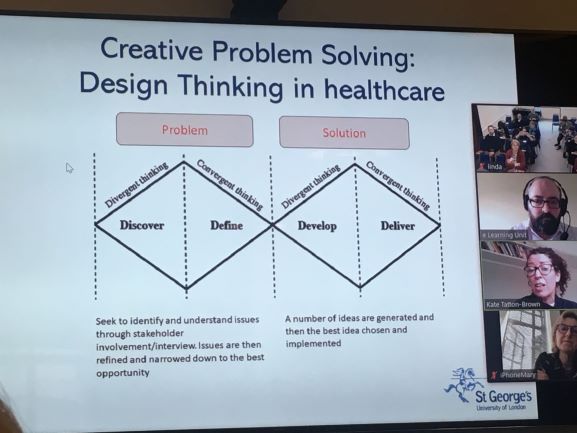The afternoon parallel sessions were harder for me to select. In the end I opted for one being led by David Baume as I had met him earlier in the day and thought he seemed interesting and interested in other people’s ideas and thoughts. A good combination overall.
This was coupled with a session about teacher training which was well presented and seemed quite interesting on a few levels but I used the time to catch up with my work email and Twitter – sorry!
David Baume was presenting on course design and pedagogy – something I thought may be of use to me at work.
He began by listing things which we *know* about learning. While he rattled these off as if they were absolutely basic information I noted them down. Having begun MAODE from a setting outside of education and with an education which did not include teaching – I had found that often there was an assumption I knew things which I did not know. This kind of thing was typical of that:
- Clear structure and framework, scaffolding, supports
- High standards are expected
- Learners acknowledge and use their prior learning
- Learning is an active process
- Learning takes lots of time – on task, in practice
- Collaboration with other students and with the staff
- Giving and receiving and using feedback
The vital connection between learning theory and teaching practice should be absolutely obvious but it was an image I had not previously visualized.
David then had a few strong things to say about the assumptions underpinning distance education as practiced and experienced by many:
Distance learning (wrongly?) assumes:- Students learn by watching recorded videos
- Students learn from reading
- Students learn from discussion in forums
- Students demonstrate learning by writing essays
- High level academic capabilities can be developed by, and tested by, MCQs
We then broke off into small groups to discuss what alterations we could make to our own teaching practice. This was less than ideal as I am not a teacher or a learning designer. In retrospect I realized that I could have applied some of the principles to a 90 day education program I manage at work, but hindsight is, as ever, unhelpful! I’m usually good at ‘blagging’ but feedback time was dreadfully awkward as I made up something a bit stupid!
The day ended with a quick insight into the back rooms of the London University and a couple of glasses of red wine with an OU colleague who has become a friend. There has been much theorized about the inferior quality of online learning vs ‘real’ learning but my OU experience has shown that to be a flawed position. Online learning has so much to recommend it – for flexibility and depth and breadth and so many things. Online friendship also has much to recommend it – the sniffy ‘not a real friend’ attitude entirely mistakes how well online communication – both synchronous and asynchronous – can foster real friendship with its associated support, and fun and laughter. Whilst I am enthusiastic in promoting the value and genuine friendship an online relationship can foster… it was very VERY nice to be across a table sharing a drink, a rant, a giggle and putting the world to rights. Sadly the virus mean the hug had to remain virtual for this time!
